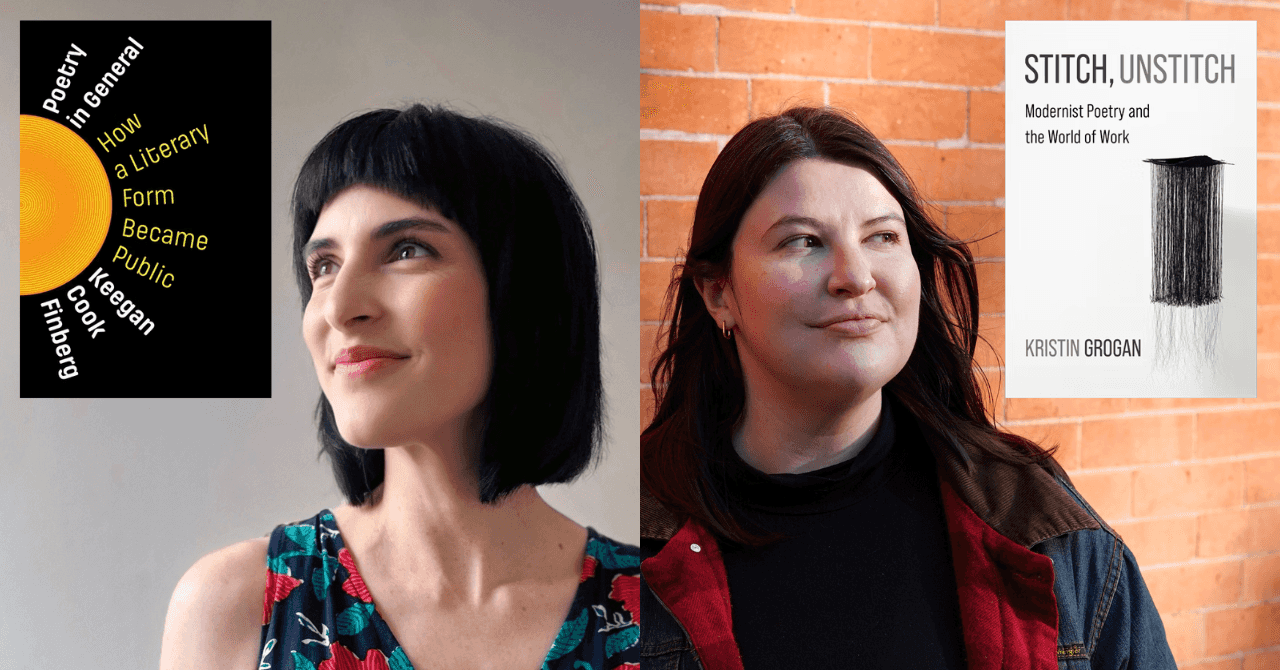- Cafe
- Bookstore
- Upcoming events
- Book an event
- Catering
- Institutional and bulk sales
- About Red Emma's
- Press
- Buy gift cards
- Red Emma's merch
- Donate to the Red Emma's Education Fund

Keegan Cook Finberg and Kristin Grogan present "Poetry in General: How a Literary Form Became Public" and "Stitch, Unstitch Modernist Poetry and the World of Work" in conversation w/ Christopher Nealon
This event has already happened.
Poetry in General
In the second half of the twentieth century, poetry leapt out of books and became an interdisciplinary public form. Poetry entered bureaucratic systems of organization like index card catalogues; it pushed the boundaries of privately owned public parks. Keegan Cook Finberg argues that poetry became an increasingly capacious force during this period because it could speak directly to the degradation of the social-democratic notion of the public.
Poetry in General explores how poets expanded their practice into the realms of politics, work, and everyday life from 1960 to the present, from the apex of the welfare state to an era of privatization and austerity. It considers a compelling array of figures—including Yoko Ono, George Brecht, Frank O’Hara, Amiri Baraka, Bernadette Mayer, Eleanor Antin, Adrian Piper, and M. NourbeSe Philip—whose works draw on conceptual techniques to transform official documents and spaces. Finberg shows how these public texts expose the mechanisms of the neoliberal consensus about work and leisure, the state’s facilitation of capitalism, and enduring racial and gender inequities. She also provides politically charged ways to interpret and critique racial capitalism, antiabortion legislation, and mass debt. A new literary and institutional history of postwar poetics, this book shows how poetic experiments address the privatization of collective life and rethink the category of the public.
Stitch, Unstitch
The labor of literature is often thought of as a specialized craft, distinct from everyday work. In Stitch, Unstitch, Kristin Grogan traces an alternative vision of writing and the writer, arguing that modernist poetry was deeply shaped by ordinary labor and the people who performed it. This relationship provoked powerful political and aesthetic experiments—and allowed modernist poets to imagine ways of life beyond the demand to earn a living.
Poetic form, Grogan shows, offers ways to reflect on the meaning and worth of labor, particularly types of gendered labor that are typically unseen and undervalued. Her fine-grained readings locate modernist poetry within sites of social reproduction, factory work, craft labor, and other forms of manual labor, placing literary texts alongside objects such as constructivist posters and set design, household notes, and homemade books. Grogan considers Ezra Pound’s ideology of craft and artisanal labor; Lola Ridge’s immersion in the New York garment industry; Langston Hughes’s encounter with Soviet workers’ theater; Gertrude Stein’s gendered and queer domestic labors; and Lorine Niedecker’s employment as a hospital cleaner. Blending Marxist and feminist theory with attentive close readings, Stitch, Unstitch is a revelatory materialist account of the values of poetry.
Keegan Cook Finberg is an assistant professor of English and affiliate faculty in Gender, Women’s, and Sexuality Studies and Language, Literacy, and Culture at University of Maryland, Baltimore County where she teaches classes on modern and contemporary American literature, aesthetic and cultural theory, and poetry. Her first book of criticism, Poetry in General: How a Literary Form Became Public, about the transformation of the welfare state in the United States after 1960, is out now from Columbia University Press. Her next will be about changing state surveillance culture, poetic forms, and myths and ideas about the family. She is also the author of a poetry chapbook called The Thought of Preservation (2019) about gentrification in a Nashville neighborhood.
Kristin Grogan is an assistant professor in the English department at Rutgers University, where she specializes in poetry's social and political forms. Her first book, _Stitch, Unstitch: Modernist Poetry and the World of Work, _about poetry's productively antagonistic relationship with the demand to work for a living, is out now from Columbia University Press. Her next book, for Amherst College Press, is _Into the Red: On Sylvia Plath's Ariel. _She teaches classes on poetry and poetics, modernism, and queer literature.
Christopher Nealon, Professor of English at Johns Hopkins University, teaches American literature, aesthetic theory, and the intellectual histories that bear on the history of poetry. He also regularly teaches courses that explore how the humanities have conceived of capitalism. He has written three books of criticism: Foundlings: Lesbian and Gay Historical Emotion before Stonewall (2001), The Matter of Capital: Poetry and Crisis in the American Century (2011), and Infinity for Marxists: Essays on Poetry and Capital (2023). He is the co-editor, with Colleen Lye, of the collection After Marx: Literature, Theory and Value in the 21st Century (2022). He is also the author of five books of poetry, including The Shore, which was a finalist for the 2020 National Critics’ Book Circle Award. His latest volume of poems is All About You (2024). He is currently completing a book called The Concept of Capital, which examines the limits of three 20th- and early 21st-century attempts to offer “big-tent” arguments for the political relevance of Marx’s work: the idea that we’re all alienated; that capital makes everything abstract and impersonal; and that we are in a terminal crisis for capitalism. In contrast to these arguments, he develops an account of how the thing about Marx’s work that seems most esoteric — his theory of value — is actually the gateway to a stronger approach to solidarity and political organization.

